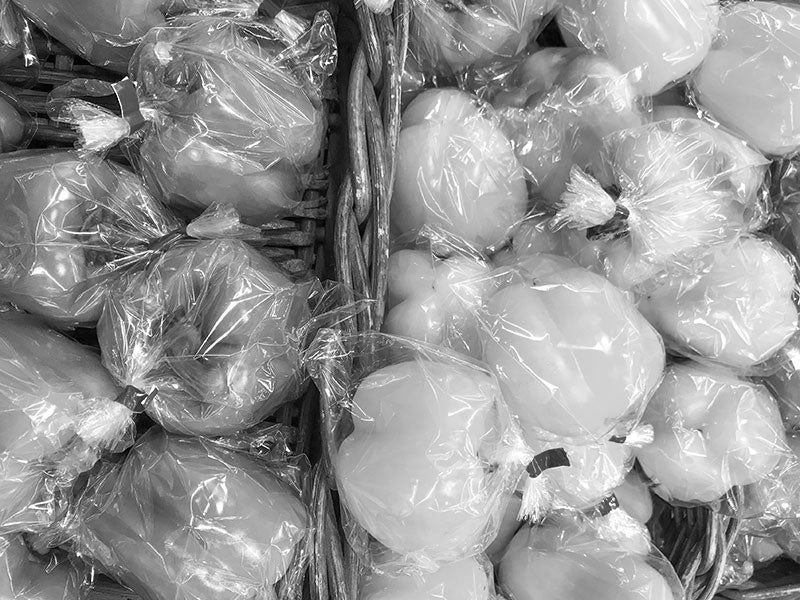January 23, 2024
How Big Oil is Using Toxic Chemicals as a Lifeline – and How We Can Stop It
Petrochemicals are an environmental and public health disaster. What you need to know.
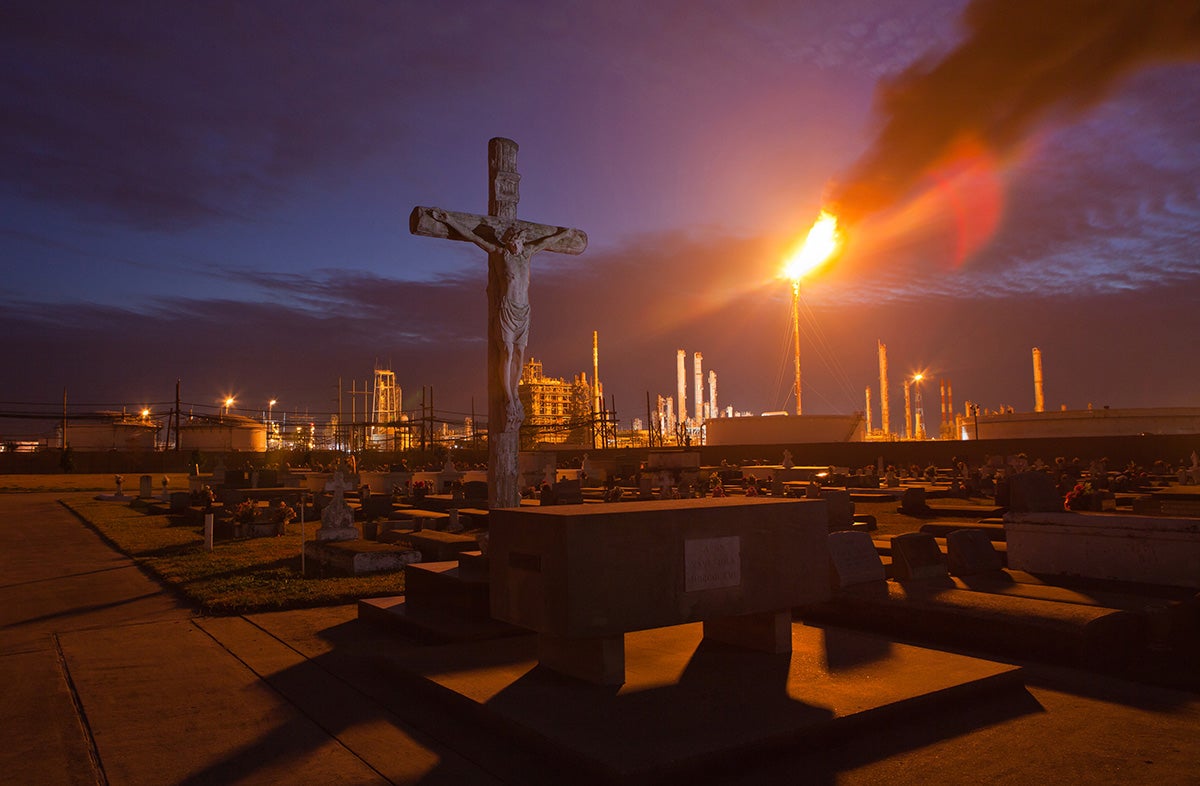
As we move towards zero-emissions and 100% clean energy, the oil and gas industry is launching a last-ditch effort to protect its profit, betting big on petrochemicals: toxic chemicals made from oil and gas that are used to make plastics, industrial chemicals, and pesticides.
In the U.S., the industry is planning a massive build-out of petrochemical plants. Many of these facilities are planned in low-income communities and communities of color already overburdened by pollution and a long history of environmental racism. If the build-out goes forward, it will lock in more climate pollution, plastic waste, and toxic chemicals that poison our communities.
Earthjustice is fighting to stop the petrochemical boom in its tracks — and we need your help. Here’s what you need to know.
1. Petrochemical plants use oil and gas to make plastics, industrial chemicals, and pesticides.
Petrochemicals are derived from crude oil and fracked gas.

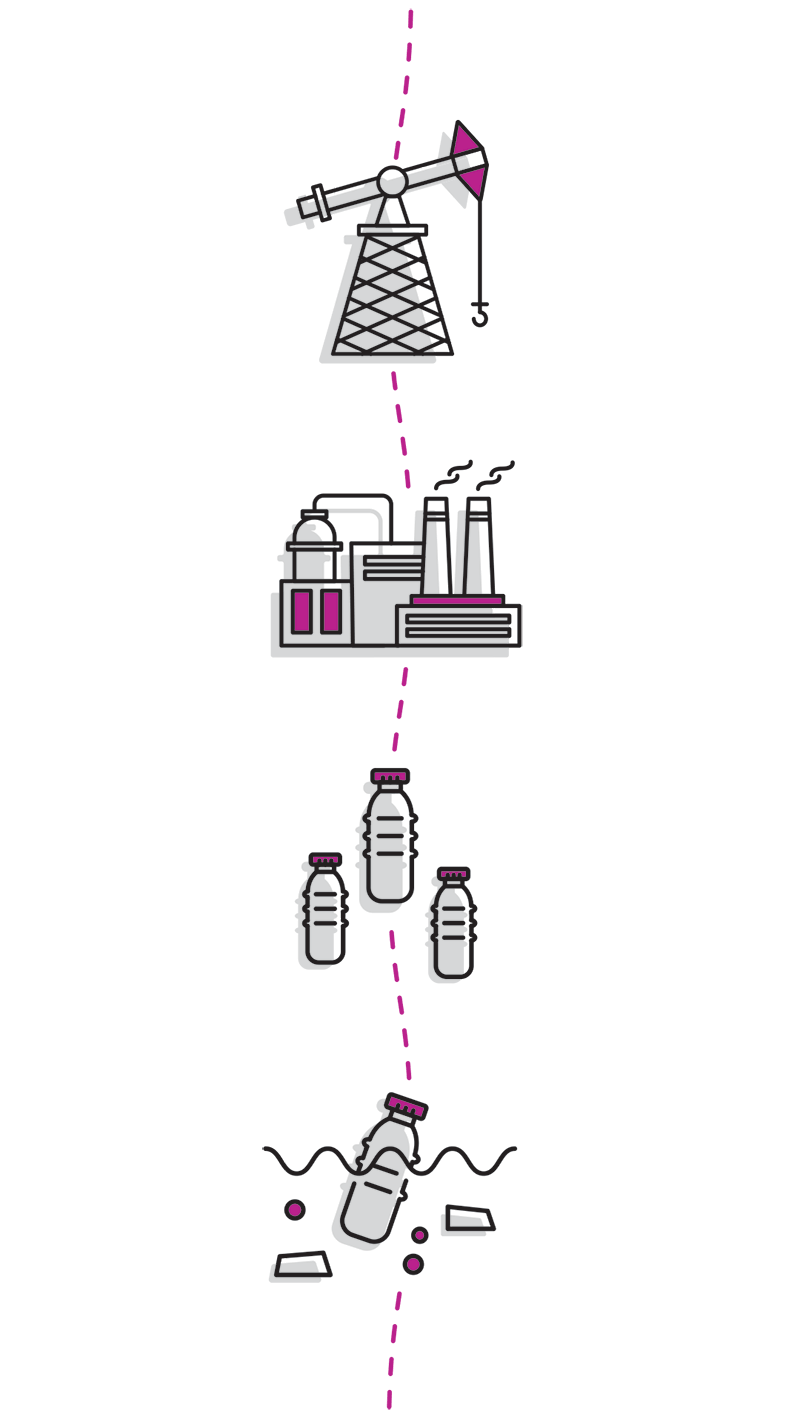
Petrochemical plants convert the components of oil and gas — such as ethane, propane, butane, and methane — into chemicals like ethylene, propylene, butadiene, and methanol.
These chemicals are the building blocks for plastics, industrial chemicals, agricultural pesticides, and other materials that harm human health and the environment throughout their lifecycle.
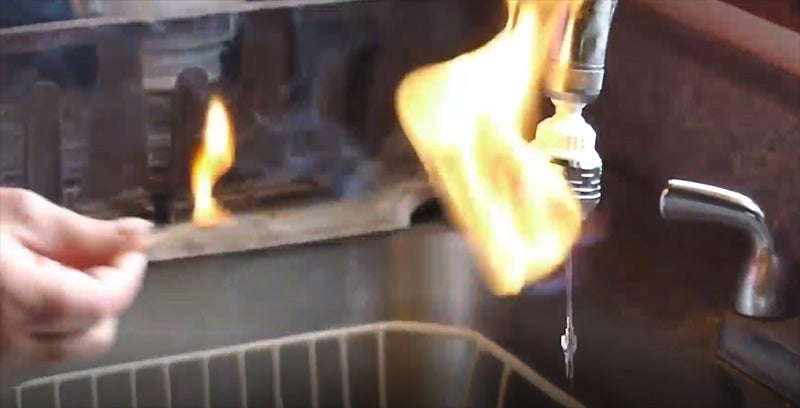
2. Big Oil is betting on petrochemicals to stay afloat.
The industry is looking to offload a glut of cheap oil and fracked gas and build up its profit margins.
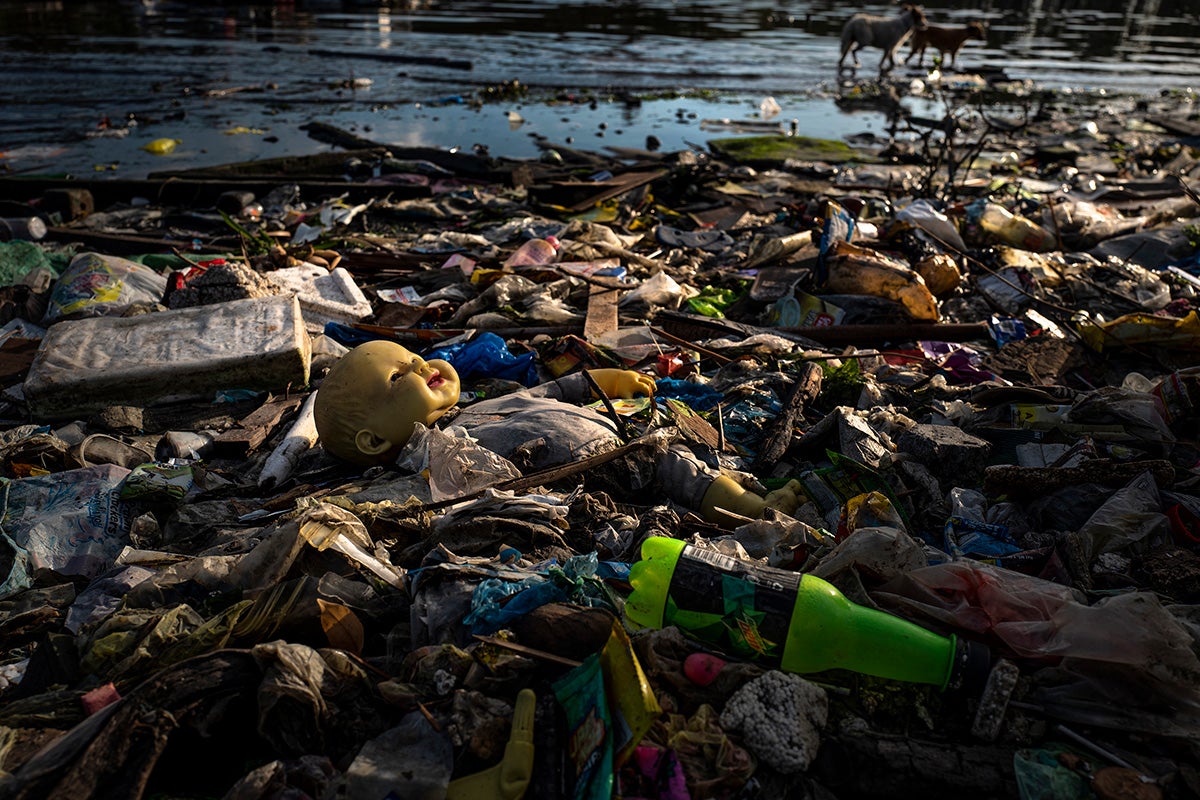
As the clean energy transition threatens Big Oil’s bottom line, the industry is looking to offload a glut of cheap oil and fracked gas and build up its profit margins by turning to petrochemicals.
With hundreds of new or expanded petrochemical facilities underway, the industry is betting big on a petrochemical boom.
The build-out is planned primarily in the Appalachian and Gulf Coast regions — areas with cheap land and industry-friendly governments, in communities already dealing with toxic pollution from existing fossil fuel infrastructure. The Gulf Coast is especially attractive to the industry because of its proximity to international ports, where most of the petrochemical products will be exported.
If this build-out goes forward, it will lock in more consumption of oil and gas for decades to come.
3. Communities of color and indigenous communities pay the price while polluters profit.
Our country has a long history of environmental racism and injustice, which continues today.
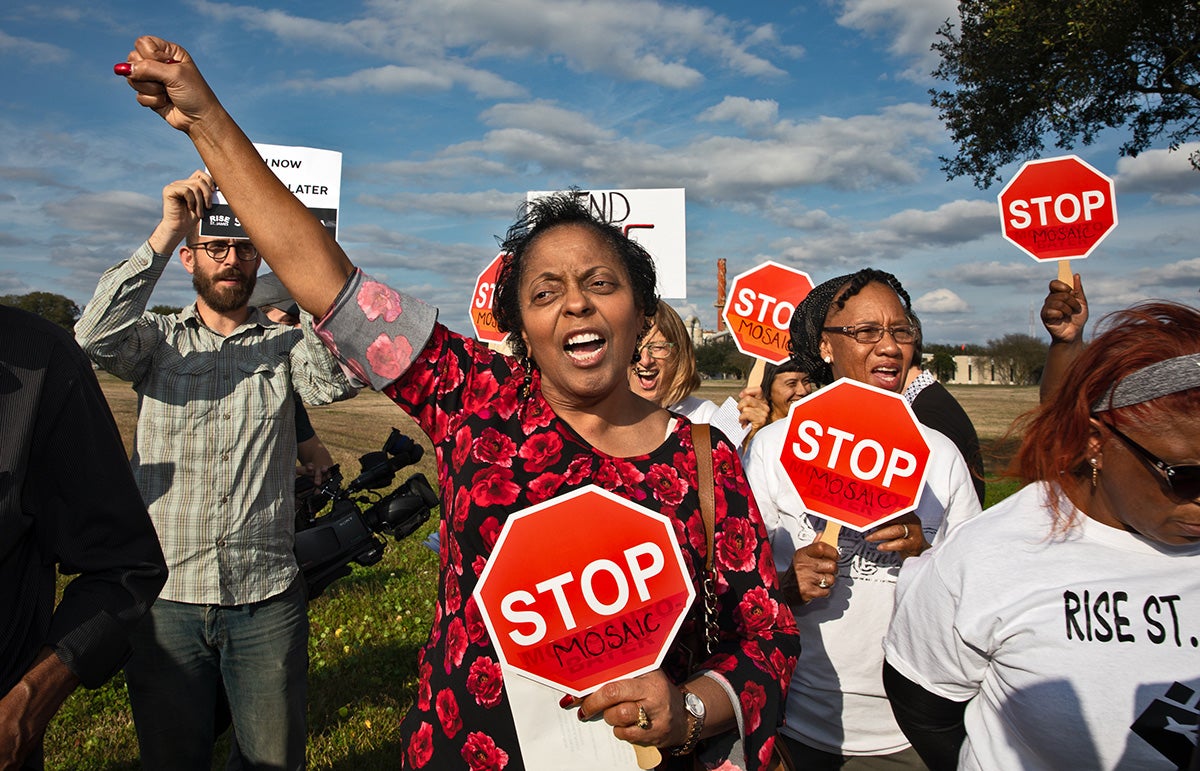
Petrochemical companies promise economic benefits when they come to town, but the reality is that communities pay the price while polluters profit. Companies often bring in workers to operate the plants, rather than hiring locally. They benefit from special tax breaks and other incentives that deny economic benefits to the community.
Meanwhile, schools and churches are forced to relocate to make way for new plants, and residents are left with the choice to stay and risk their health or try to negotiate a buyout and abandon their homes.
For far too long, polluters have targeted communities of color, indigenous communities, and low-income communities where they think they can get away with it.
New petrochemical facilities would dump even more pollution in these same communities, exacerbating health problems like cancer and asthma.
Our partners and Earthjustice are fighting a proposed 2,500-acre petrochemical complex in a predominantly Black community in St. James Parish, Louisiana.
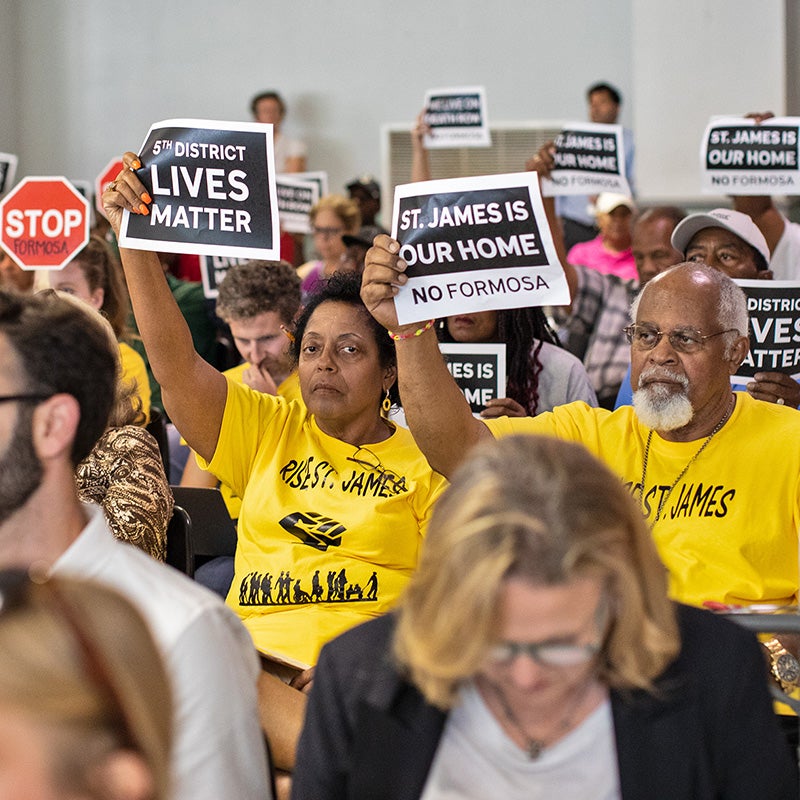
Sharon Lavigne of RISE St. James sits next to her brother, Milton Cayette, Jr., a St. James resident, during Louisiana’s Department of Environmental Quality’s public hearing on whether to approve 15 air permits for Formosa Plastics in Vacherie, Louisiana, on Jul. 9, 2019.
Photo by Julie Dermansky
St. James is in the heart of Cancer Alley — an 85-mile stretch along the Mississippi River with a high concentration of industrial plants, and high cancer rates among residents.
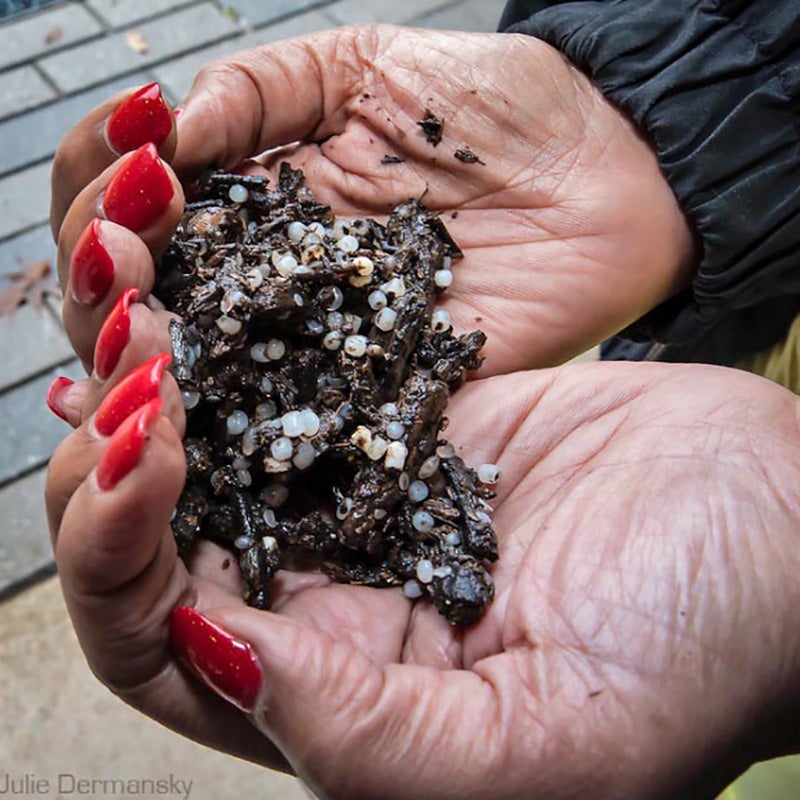
Lavigne holds “nurdles,” plastic resin pellets produced at petrochemical facilities that serve as the raw ingredient for nearly all plastics. Formosa Plastics has been found to be a serial offender of environmental laws for dumping nurdles.
Photo by Julie Dermansky
The Formosa mega-complex would double toxic emissions in St. James, and triple the levels of chemical carcinogens in Cancer Alley.
It would emit more carbon pollution than any other petrochemical facility in the U.S., fueling the climate crisis in an area prone to hurricanes and flooding.
Representing community groups in Cancer Alley, Earthjustice challenged the facility’s air permits, and a Louisiana court vacated those permits in 2022.
In 2024, an appellate court overturned that victory. Earthjustice will continue to fight alongside Cancer Alley communities to stop this project.

Lavigne led “The March Against Death Alley”, a two-week protest march in 2019, from the Reserve to Baton Rouge, to pressure industry and governments to stop the ongoing poisoning of the community.
Photo by Julie Dermansky
Sharon Lavigne
RISE St. James

Julie Dermansky
Sharon Lavigne: “We’re not going to dwell on what we can’t do — we’re going to dwell on what we can do.”
Photo by Julie Dermansky
4. Petrochemicals are fueling the climate crisis.
Petrochemicals are a carbon bomb that threaten to cancel out the progress we’ve made on solving the climate crisis.
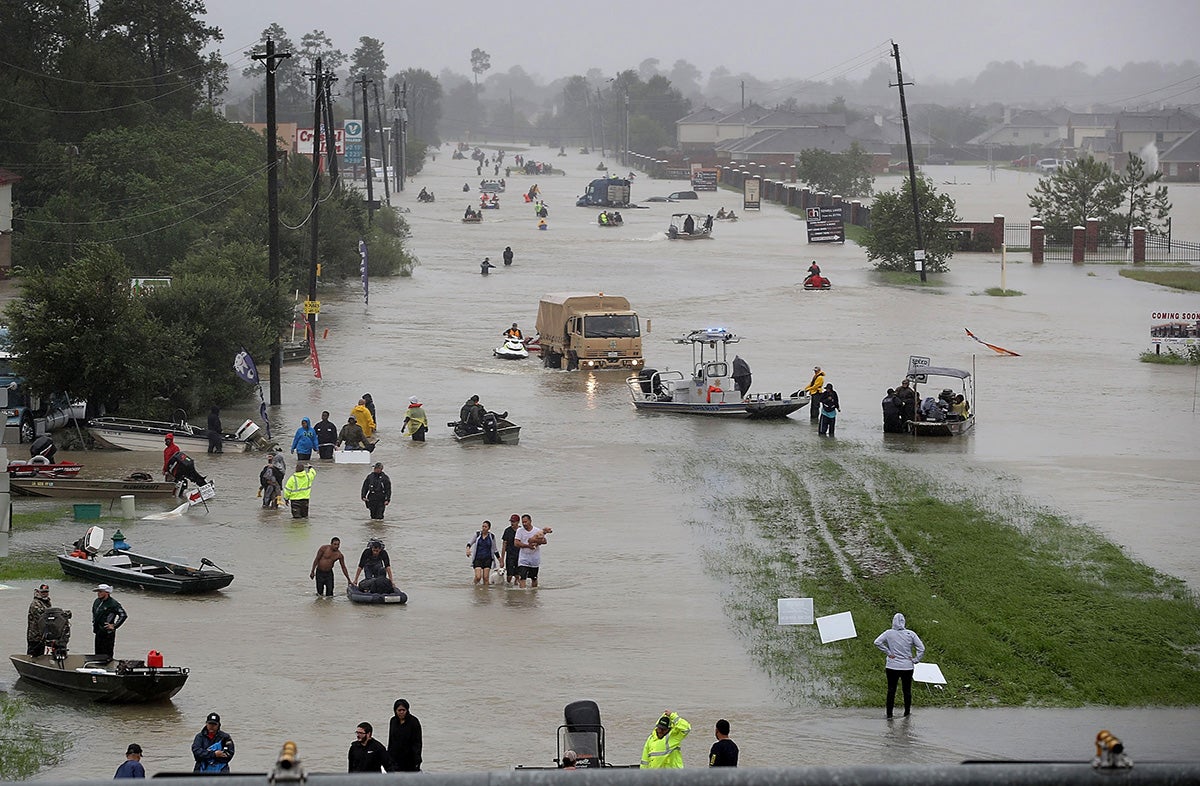
As we make the switch to clean energy and transportation, petrochemicals are on track to be the largest driver of world oil demand.
New petrochemical facilities would extend the life of the oil and gas industry and undermine efforts to keep fossil fuels in the ground.
For example, just one proposed petrochemical complex in Ohio would require thousands of shale gas wells to be drilled and fracked to keep it supplied with raw materials.
Petrochemical facilities are energy-intensive and dump an enormous amount of carbon pollution into the air.
For example, Louisiana’s Formosa mega-complex alone would emit 13.6 million tons of carbon pollution every year — the equivalent of adding 2.8 million cars to the road.
After they are produced, petrochemical products continue to fuel the climate crisis.
For example, nearly 12% of plastic waste is incinerated, releasing more greenhouse gases as well as dangerous toxins. New research suggests that plastic releases greenhouse gases as it degrades — representing a potentially vast and uncontrollable source of emissions.
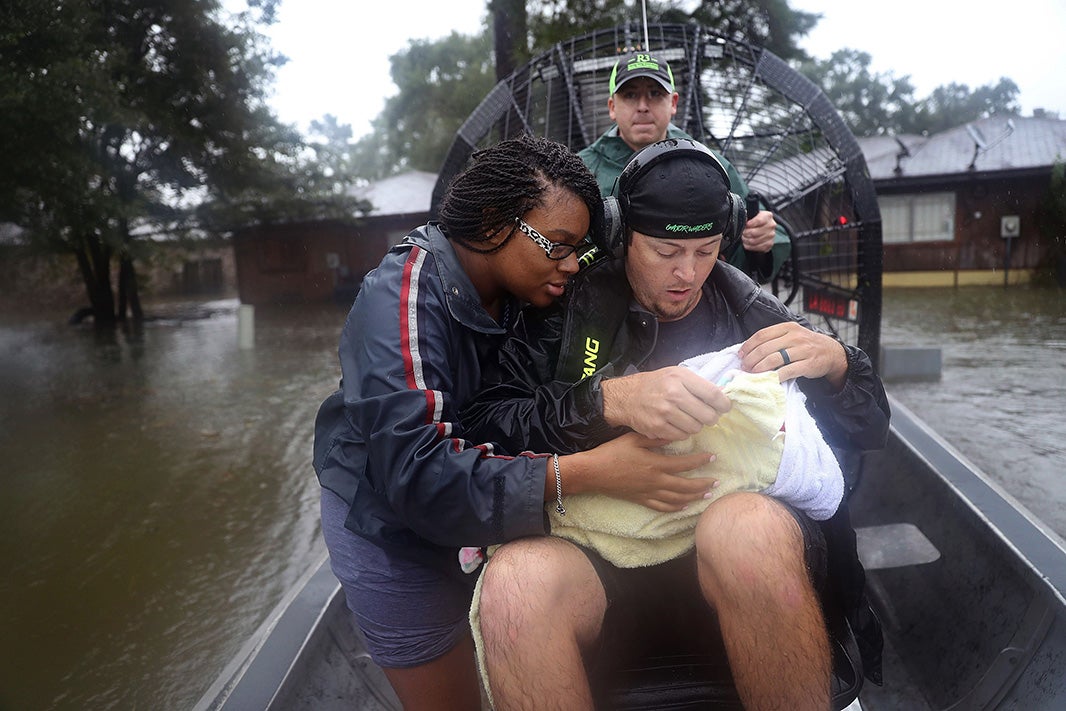
5. A petrochemical boom will lock in plastic pollution for decades.
Our planet is drowning in plastics that pollute our air and water. The only way to stop the plastic pollution crisis is to make and use less plastics.
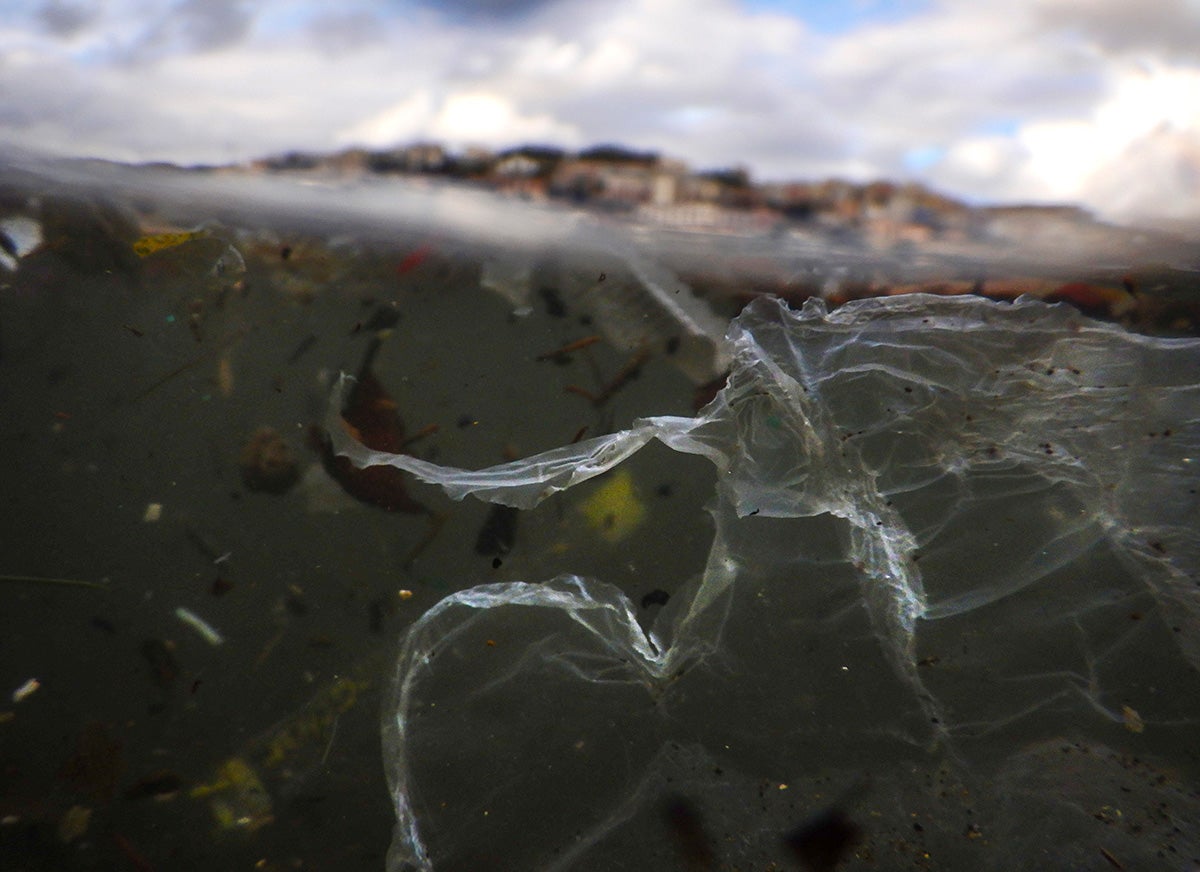
We produce 300 million tons of plastic every year, half of which is for single-use products like water bottles and plastic bags. Americans alone throw away more than 30 million tons of plastic every year, and only 8% of it gets recycled.
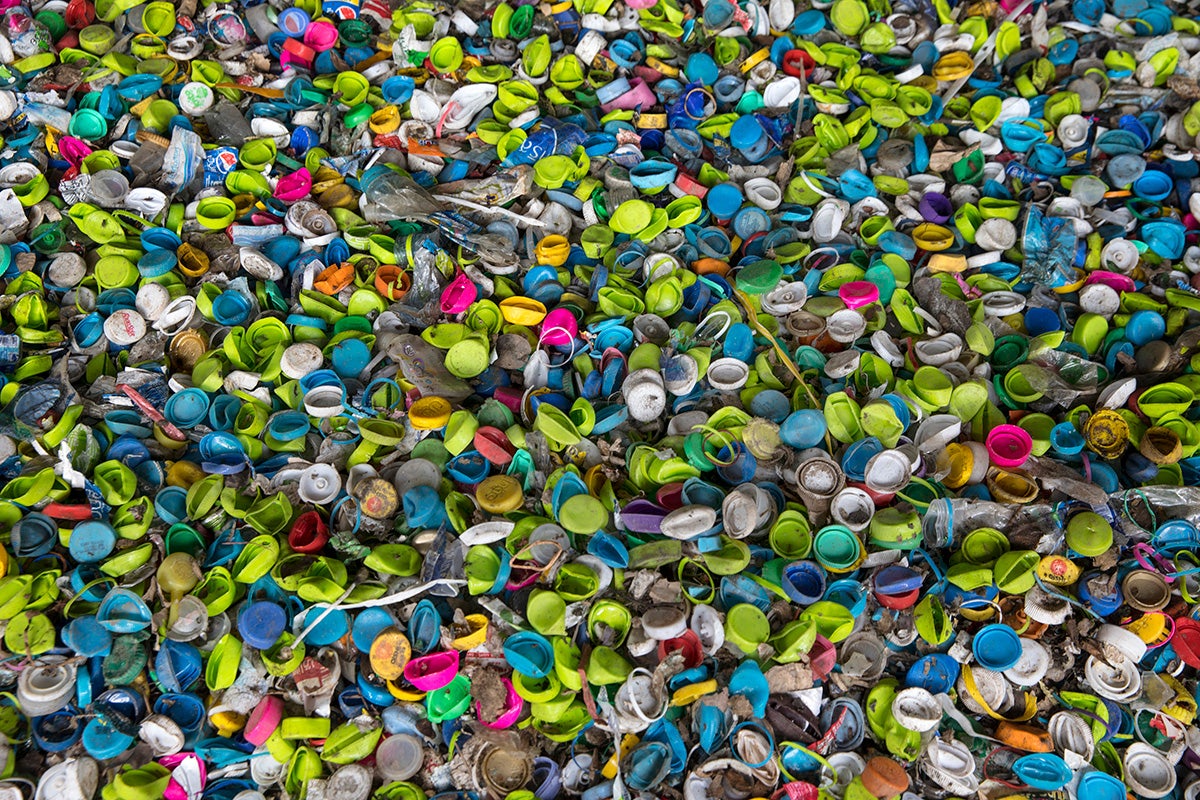
Plastic waste ends up in landfills, where its toxic chemicals leach into groundwater and flow downstream into lakes and rivers. Or it ends up in our oceans — scientists estimate 8 million metric tons of plastic enter the ocean every year. There, it threatens wildlife and poisons our food chain.
The plastics industry is counting on more petrochemical plants to lock in plastics consumption, and its profits, for decades to come. Half of all plastics ever manufactured have been made in the last 15 years.
The only way to stop the plastic pollution crisis is to make and use less plastics.
6. Petrochemical products are poisoning our homes and workplaces.
Petrochemicals expose everyone to dangerous chemicals that threaten our health.
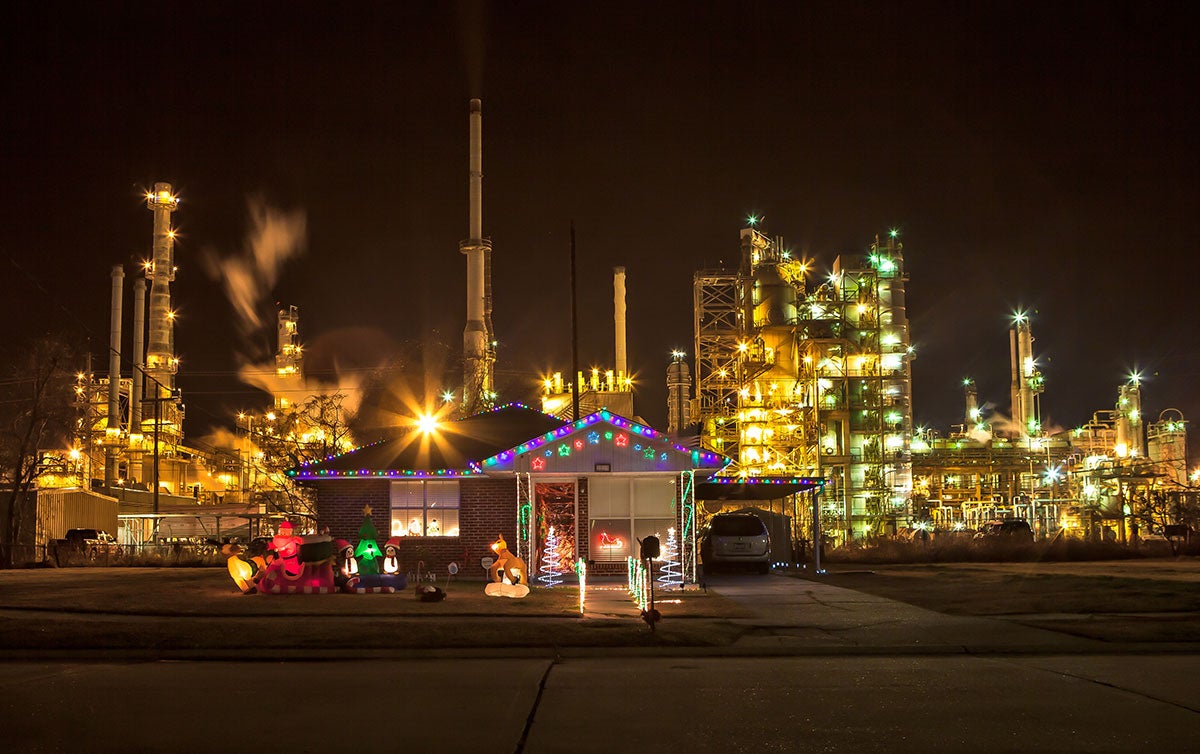
Petrochemical products are everywhere, exposing us to dangerous chemicals that threaten our health.
The plastic products we use at home every day leach additives like BPA into our families’ food and water, which end up in our bloodstreams. These chemicals are linked to cancers, hormone disruption, and developmental problems.
Meanwhile, microplastics are so widespread in our environment that we are inhaling plastic particles in the air and drinking them in our water. We may be ingesting an average of 5 grams of plastic every week — the amount in a credit card.
Petrochemicals are a major threat to workers, too. Exposure to industrial chemicals commonly used in shops and offices can lead to poisoning, skin rashes, and cancers. Some chemicals, like paint strippers that use methylene chloride, can even cause heart failure and sudden death.
Millions of agricultural workers are also in harm’s way since petrochemicals are used to develop pesticides, which are toxic to humans and contaminate soil, water, and air.
7. Earthjustice is on the forefront of the fight against petrochemicals.
We’re holding decision-makers accountable and making sure communities’ voices are heard.
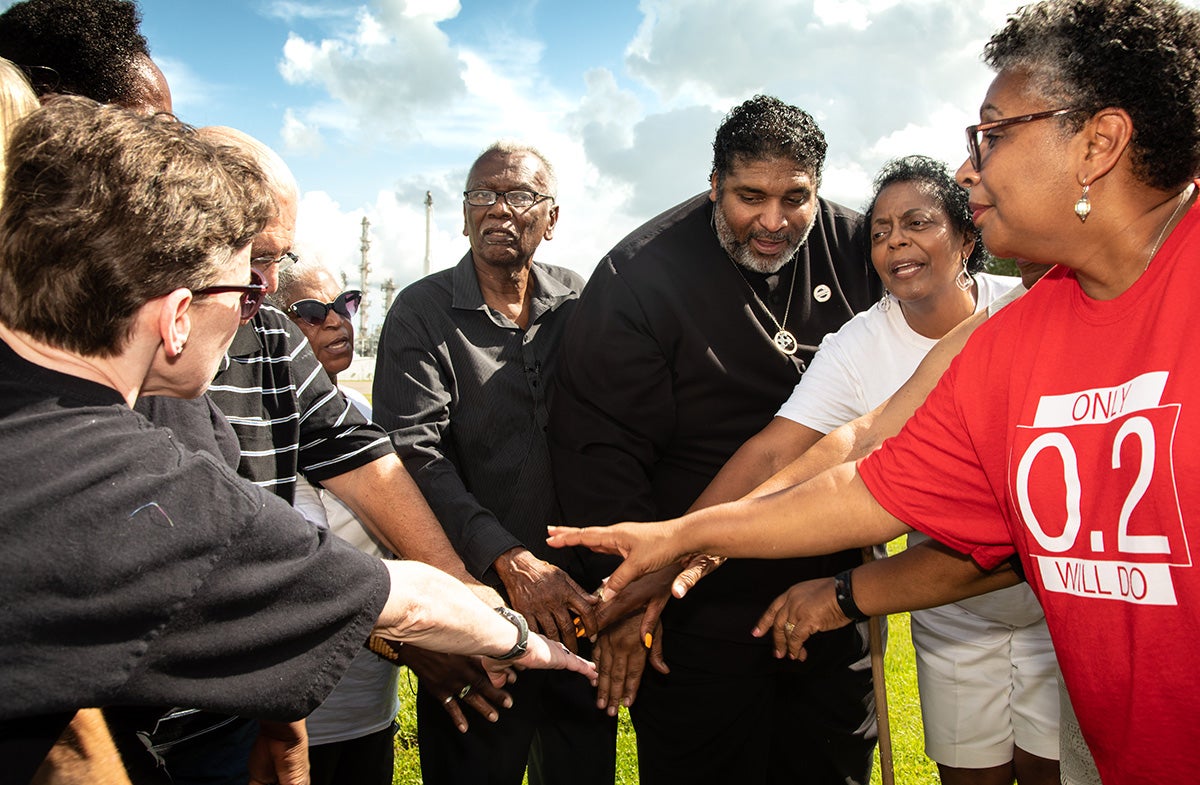
- Earthjustice is partnering with communities in the Gulf and Appalachia that are rising up to stop more petrochemical plants in their neighborhoods. We’re challenging storage hubs and other infrastructure that allow these facilities to ramp up production. We’re working in Washington, D.C., to pause permitting and stop federal funding for petrochemical facilities.
- We won stronger air pollution rules on some of the most harmful chemicals made from oil and gas. The new rules from the EPA — developed after we sued the agency in 2020 for unlawfully delaying — set restrictions for the largest emitters of two deadly pollutants: chloroprene and ethylene oxide.
- We’re supporting legislation to tackle plastic pollution and ensure plastic producers are responsible for their waste.
With our partners, we’re raising awareness about the threat of a petrochemical boom and how we can stop it.
8. You can help.
Together, we can stop fossil fuels in its tracks — and work towards justice for the planet and its people.
Our partners in the Gulf and Appalachia have been working hard to stop the petrochemical build-out in their communities.
And they’re starting to see results. Wanhua Chemical, a Chinese industrial giant, scrapped plans in Sept. 2019 to build a petrochemical complex in Cancer Alley after strong opposition from residents.
This victory shows that our voices matter, and together we can win this fight. We need you to be part of the fight.
Earthjustice’s Fossil Fuels Program is taking on the fossil fuel industry’s efforts to pursue new paths to profit that not only accelerate the climate crisis, but also continue to cause harm to marginalized communities.
The Gulf Regional Office works with communities and other partners fighting for a healthy and just future in the Gulf. We work to cut pollution, end fossil fuel expansion, protect our region’s precious places and wildlife, transition to clean energy, and drive climate solutions that work for everyone.

